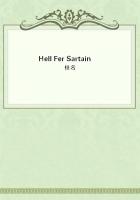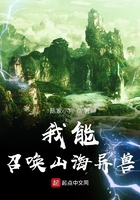But at length Curly, as he strayed, turned the sharp angle of another lost street and came upon a rollicking band of stockmen from the outlying ranches celebrating in the open in front of an ancient wooden hotel. One great roisterer from the sheep country who had just instigated a movement toward the bar, swept Curly in like a stray goat with the rest of his flock. The princes of kine and wool hailed him as a new zoological discovery, and uproariously strove to preserve him in the diluted alcohol of their compliments and regards.
An hour afterward Curly staggered from the hotel barroom dismissed by his fickle friends, whose interest in him had subsided as quickly as it had risen. Full--stoked with alcoholic fuel and cargoed with food, the only question remaining to disturb him was that of shelter and bed.
A drizzling, cold Texas rain had begun to fall--an endless, lazy, unintermittent downfall that lowered the spirits of men and raised a reluctant steam from the warm stones of the streets and houses. Thus comes the "norther" dousing gentle spring and amiable autumn with the chilling salutes and adieux of coming and departing winter.
Curly followed his nose down the first tortuous street into which his irresponsible feet conducted him. At the lower end of it, on the bank of the serpentine stream, he perceived an open gate in a cemented rock wall. Inside he saw camp fires and a row of low wooden sheds built against three sides of the enclosing wall. He entered the enclosure.
Under the sheds many horses were champing at their oats and corn. Many wagons and buckboards stood about with their teams' harness thrown carelessly upon the shafts and doubletrees. Curly recognised the place as a wagon-yard, such as is provided by merchants for their out-of-town friends and customers. No one was in sight. No doubt the drivers of those wagons were scattered about the town "seeing the elephant and hearing the owl." In their haste to become patrons of the town's dispensaries of mirth and good cheer the last ones to depart must have left the great wooden gate swinging open.
Curly had satisfied the hunger of an anaconda and the thirst of a camel, so he was neither in the mood nor the condition of an explorer.
He zigzagged his way to the first wagon that his eyesight distinguished in the semi-darkness under the shed. It was a two-horse wagon with a top of white canvas. The wagon was half filled with loose piles of wool sacks, two or three great bundles of grey blankets, and a number of bales, bundles, and boxes. A reasoning eye would have estimated the load at once as ranch supplies, bound on the morrow for some outlying hacienda. But to the drowsy intelligence of Curly they represented only warmth and softness and protection against the cold humidity of the night. After several unlucky efforts, at last he conquered gravity so far as to climb over a wheel and pitch forward upon the best and warmest bed he had fallen upon in many a day. Then he became instinctively a burrowing animal, and dug his way like a prairie-dog down among the sacks and blankets, hiding himself from the cold air as snug and safe as a bear in his den. For three nights sleep had visited Curly only in broken and shivering doses. So now, when Morpheus condescended to pay him a call, Curly got such a strangle hold on the mythological old gentleman that it was a wonder that anyone else in the whole world got a wink of sleep that night.
*****
Six cowpunchers of the Cibolo Ranch were waiting around the door of the ranch store. Their ponies cropped grass near by, tied in the Texas fashion--which is not tied at all. Their bridle reins had been dropped to the earth, which is a more effectual way of securing them (such is the power of habit and imagination) than you could devise out of a half-inch rope and a live-oak tree.
These guardians of the cow lounged about, each with a brown cigarette paper in his hand, and gently but unceasingly cursed Sam Revell, the storekeeper. Sam stood in the door, snapping the red elastic bands on his pink madras shirtsleeves and looking down affectionately at the only pair of tan shoes within a forty-mile radius. His offence had been serious, and he was divided between humble apology and admiration for the beauty of his raiment. He had allowed the ranch stock of "smoking" to become exhausted.
"I thought sure there was another case of it under the counter, boys,"he explained. "But it happened to be catterdges.""You've sure got a case of happenedicitis," said Poky Rodgers, fency rider of the Largo Verde /potrero/. "Somebody ought to happen to give you a knock on the head with the butt end of a quirt. I've rode in nine miles for some tobacco; and it don't appear natural and seemly that you ought to be allowed to live.""The boys was smokin' cut plug and dried mesquite leaves mixed when Ileft," sighed Mustang Taylor, horse wrangler of the Three Elm camp.
"They'll be lookin' for me back by nine. They'll be settin' up, with their papers ready to roll a whiff of the real thing before bedtime.
And I've got to tell 'em that this pink-eyed, sheep-headed, sulphur-footed, shirt-waisted son of a calico broncho, Sam Revell, hasn't got no tobacco on hand."Gregorio Falcon, Mexican vaquero and best thrower of the rope on the Cibolo, pushed his heavy, silver-embroidered straw sombrero back upon his thicket of jet black curls, and scraped the bottoms of his pockets for a few crumbs of the precious weed.















